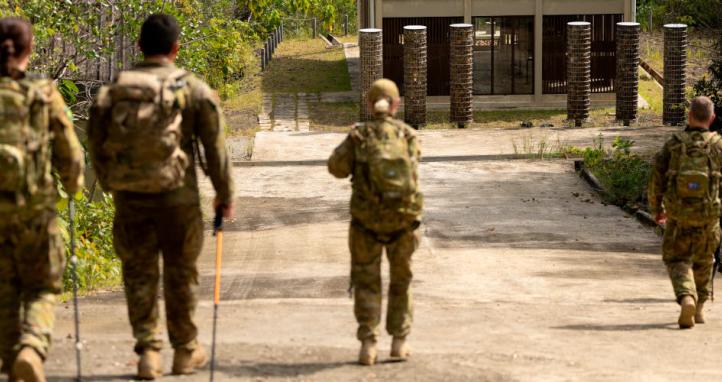In this QME we look at 'Bystander Behaviour'. CA Directive 03/21 defines a bystander as, 'anyone involved in or becomes aware of an incident or situation that is a serious contravention to our values, has an adverse impact on morale, wellbeing or discipline or which compromises Army's reputation or capability. A bystander is neither the perpetrator, nor a victim. A bystander can also be a member of a peer group who is not present at the time of an incident, but who is nonetheless a friend or team member, associated with the person involved and who fails to report an incident once they become aware of its gravity. All Army members are to:
-
ACT. Take all reasonable steps available to them to prevent inappropriate conduct from occurring or continuing (if it is safe for them to do so). By intervening early you prevent the situation escalating to the detriment of individuals, the team and/or yourself.
-
REPORT. Report instances of inappropriate conduct that they observe, or gain knowledge about, as soon as reasonably practical. Reporting is to be done in accordance with Defence or Army policies governing the type of incident that has occurred. Where there is doubt regarding who the report should be addressed to, the member is to address it to their chain of command. A report can be made in writing or verbally.
-
EMPOWER. Encourage people to stop or report behaviour that falls short of the standards expected. Do not prevent or discourage another person from attempting to stop or report behaviour that falls short of the standards expected. Reward those who do the right thing.'
In this brief podcast Warrant Officer Class One Michael Coggan from WONCO-A, reminds us that in order to maintain our standards we must have the moral courage to correct faults, even if they are minor, and not let ourselves become victims of bystander behaviour (and the belief that somebody else will take action) - we must develop a bias for action. Allow 10 minutes for soldiers to listen to the track and then you can either use the questions below to create a discussion or come up with your own questions.
Discussion Points
- What are some examples where you have seen basic standards slip?
- If a more senior officer/soldier fault corrects you what is your reaction likely to be?
- Why are leaders reluctant to conduct basic fault correction?
- Important fault correction is not just about uniform or tardiness. What are some inter-personal behaviours that should be fault corrected?
- What are some situations where you did not fault correct and later on you felt that you should have and why?
- Do you agree with the CSM that enforcement of basic standards in barracks leads to higher performance on operations? Give some examples to support your view.
- If you passed a service member you didn't know fail to meet a basic standard, such as acting inappropriately, would you correct the fault, and how?
Reflection
Reflection is an important element of learning. It allows us to consider theories or events, and understand how they might apply to us. One way to conduct reflection is using the 'what, so what, now what' process. In this instance, this process could be used like this:
- WHAT did I learn from considering this scenario?
- SO WHAT am I going to do about what I’ve learned?
- NOW WHAT does that learning mean for my own practice as a military professional?
Other activities
If you enjoyed this activity, why not try the other QMEs available on The Cove?
Concluding Comments
The information in this package is designed to help junior commanders to develop and deliver PME in the unit environment. If you have suggestions for improvements - additional readings or reference material, alternative discussion points, new delivery methods - or if you just want to provide feedback, please contact the Cove Team via the.cove@defence.gov.au.









